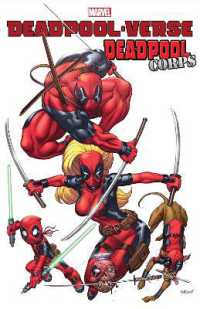Full Description
A standard feature of our engagement with fictions is that we praise them as if they offer true insights on factual, psychological or evaluative matters, or criticize them as if they purport to do it but fail. But it is not so easy to make sense of this practice, since fictions traffick in made-up narratives concerning non-existing characters. This book offers the reader conceptual tools to reflect on such issues, providing an overarching, systematic account of philosophical issues concerning fictions and illustrating them with analysis of compelling examples. It asks whether fiction is defined - as John Searle and others have claimed - by mere pretense - the simulation of ordinary representational practices like assertions or requests - or whether it is defined by invitations or prescriptions to imagine. And it advances an original proposal on the nature of fictions, explaining why fictions can refer to the world and state facts about it.
Contents
Introduction; 1. Truth in fiction; 2. On the mood for fiction; 3. Fictional worlds; 4. Fictive imaginings as entertainings; 5. Desires and emotions in response to fiction; 6. Fictional narrators; 7. Interpretation and ontology; 8. Learning from fiction; 9. Fictional characters and fictional reference.








